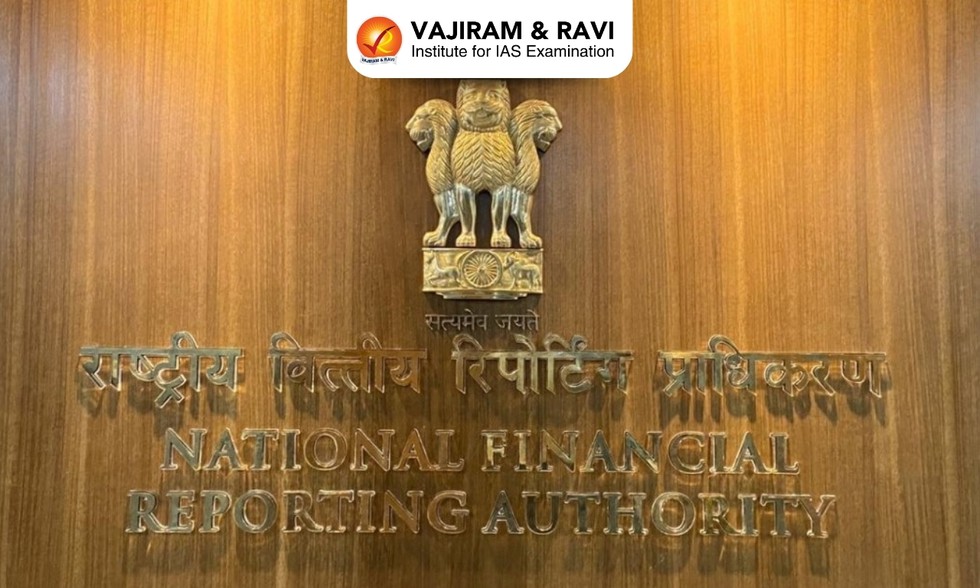About National Financial Reporting Authority (NFRA):
- It is an independent regulatory body established by the Government of India under Section 132(1) of the Companies Act, 2013.
- Its primary role is to oversee and enforce compliance with accounting and auditing standards to improve the credibility, quality, and transparency of financial reporting in India.
- It aims to protect the interests of investors, stakeholders, and the public by ensuring high standards in the financial reporting ecosystem.
- Head Office: New Delhi
- Functions and Duties:
- Recommend accounting and auditing policies and standards to be adopted by companies for approval by the Central Government;
- Monitor and enforce compliance with accounting standards and auditing standards;
- Oversee the quality of service of the professions associated with ensuring compliance with such standards and suggest measures for improvement in the quality of service;
- Perform such other functions and duties as may be necessary or incidental to the aforesaid functions and duties.
- Composition:
- The Companies Act requires the NFRA to have a chairperson who will be appointed by the Central Government and a maximum of 15 members.
- The appointment of such chairperson and members is subject to the following qualifications:
- They should have an expertise in accountancy, auditing, finance, or law.
- They are required to make a declaration to the Central Government that there is no conflict of interest or lack of independence in their appointment.
- All the members, including the chairperson, who are in full-time employment, should not be associated with any audit firm (including related consultancy firms) during their term of office and 2 years after their term.
- Powers:
- NFRA has the power to investigate, either suo moto or on a reference made to it by the Central Government, into the matters of professional or other misconduct committed by any member or firm of chartered accountants registered under the Chartered Accountants Act, 1949.
- It has the same powers as are vested in a civil court under the Code of Civil Procedure, 1908, while trying a suit.
- Where professional or other misconduct is proved, it shall have the power to impose punishment.
- Any person who is not satisfied with the order of the NFRA can then make an appeal to the Appellate Authority.
- Jurisdiction of NFRA:
- The jurisdiction of the NFRA for the investigation of Chartered Accountants and their firms would extend to listed companies and large unlisted public companies, the thresholds for which shall be prescribed in the Rules.
- The Central Government can also refer such other entities for investigation where public interest would be involved.
